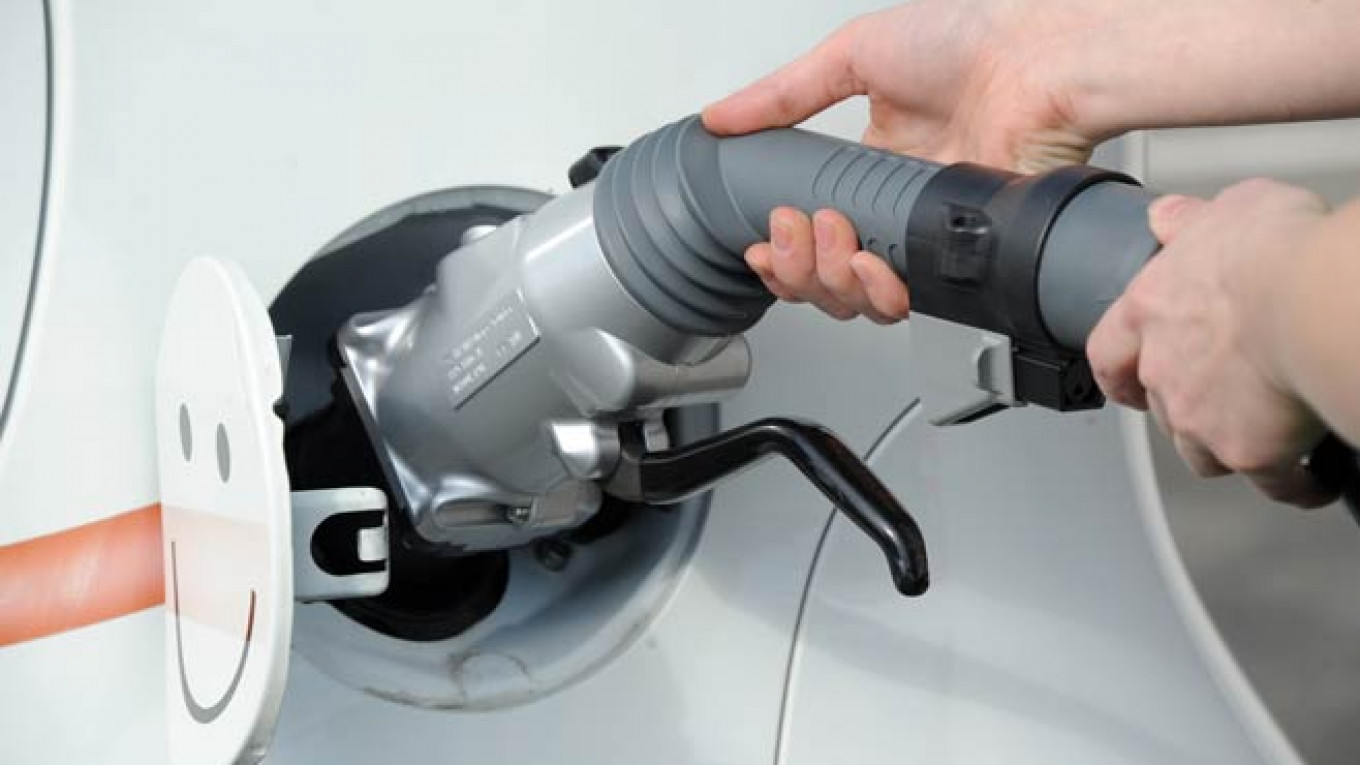Crimea could be hit by severe gasoline and diesel shortages within a few weeks after the annexation of the peninsula by Russia cut off the majority of its supplies from Ukraine, senior trade sources in the region said.
Fuel station owners in the region — some of whom have already described the supply situation as "critical" — are also contending with price cuts ordered by Moscow to bring them in line with Russian prices.
Fuel shortages in the run-up to the peak summer holiday season in Crimea, which is expecting a large influx of Russian tourists, could be embarrassing for Moscow as it moves to cement its control over the peninsula.
Ukrainian electricity company DTEK also threatened to cut electricity supplies to the peninsula on Friday over unpaid debts that it said total $60 million.
"The situation can already be described as critical," said a senior employee at the headquarters of one of Crimea's service station companies.
"Gasoline is hardly available, there are no stocks. Our management is looking at all ways to find gasoline."
Russia's energy ministry in Moscow declined to comment on potential fuel shortages in Crimea.
Before being annexed by Moscow Crimea received the vast majority of its gasoline and diesel from Ukraine by rail and truck transportation, which has largely ground to a halt.
Shipping and trade sources said Russia has not yet been able to compensate for the loss of these supplies by shipping enough gasoline and diesel into Crimea through the small oil port of Kerch in the east of the peninsula.
Ferries across the Strait of Kerch from Russia don't have the capacity to ship sufficient quantities.
"The ferries already lack capacity for steady supplies, never mind high demand during the coming tourist season's peak," said a trading source at a Russian oil major.
The service station companies are also required to switch deals to the Russian ruble from the Ukrainian hryvna under the new local authority.
Oil Demand
Excluding military demand, Crimea needs about 300,000 tonnes of diesel and 225,000 tonnes of gasoline each year, according to estimates by industry sources. That is equivalent to a combined 11,000 barrels a day.
Any cut to electricity supplies from Ukraine could increase diesel demand further, with communities likely to turn to oil-fired generators for power supplies.
The region has about 450 fuel stations, a third of which are owned by privately owned chains Atan Crim and Tes, while Russia's Lukoil and Rosneft operate 13 and nine stations respectively.
All of those companies declined to comment.
Ukraine's Ukrnafta operates 13 stations in Crimea and says it has continued to supply them with fuel by tanker truck.
"Our stations (in Crimea) do not experience any supply disruptions. Sales have been steady," said an Ukrnafta employee in Kiev.
Retail fuel prices in Crimea were lowered by 10-13 percent this week, traders said, in line with the requirement by the new local authorities to lower prices to the Russian average.
Supplies from Belarusian and Bulgarian refineries have also dried up, another senior source at a service station company in Crimea said.
One possible solution may be to bring in oil tanker shipments through the port and resort town of Feodosia in the south of the peninsula.
Trade sources said it has received at least two vessels carrying fuel in recent weeks, but the port does not yet have the necessary infrastructure to distribute gasoline and diesel to retail sites quickly.
A Message from The Moscow Times:
Dear readers,
We are facing unprecedented challenges. Russia's Prosecutor General's Office has designated The Moscow Times as an "undesirable" organization, criminalizing our work and putting our staff at risk of prosecution. This follows our earlier unjust labeling as a "foreign agent."
These actions are direct attempts to silence independent journalism in Russia. The authorities claim our work "discredits the decisions of the Russian leadership." We see things differently: we strive to provide accurate, unbiased reporting on Russia.
We, the journalists of The Moscow Times, refuse to be silenced. But to continue our work, we need your help.
Your support, no matter how small, makes a world of difference. If you can, please support us monthly starting from just $2. It's quick to set up, and every contribution makes a significant impact.
By supporting The Moscow Times, you're defending open, independent journalism in the face of repression. Thank you for standing with us.
Remind me later.






